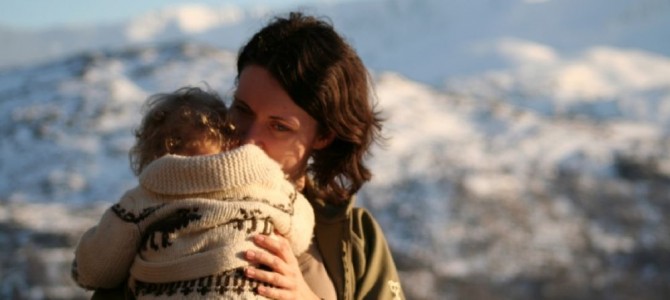
A child welfare case in Norway that has been grabbing headlines and stirring protests worldwide came to a sudden end late last week.
The story, which I covered in depth for The Federalist in April, centers on Marius and Ruth Bodnariu and their five young children. Marius, a Romanian citizen, and Ruth, a native Norwegian, first ran afoul of Norway’s child protective services (called Barnevernet) in November 2015. After privately interviewing the family’s two oldest daughters at school, Barnevernet abruptly took all five children into emergency custody: first the girls, then the younger boys, and finally the three-month-old baby.
Charges focused on the family’s occasional use of physical discipline (which is banned in Norway), but lawyers pointed to troubling CPS statements about the Bodnarius’ Christian faith, suggesting religious discrimination had also played a role. Despite medical exams and interviews with family members, doctors, and neighbors, Barnevernet was unable to find any evidence of abuse. Still, the children were split up among three foster homes, where they stayed for months with minimal parental contact.
What Came of the International Outcry
What began as one family’s harrowing story soon widened into an overall look at Barnevernet’s practices and raw power. Norwegian law grants enormous authority to local CPS offices, allowing them to seize children, place them in foster care, and even move to terminate parental rights, completely outside the framework of the judicial system and its rules of due process. Moreover, as the BBC documented in its report on the Bodnariu case, the number of children seized by Barnevernet has risen sharply in recent years, with a lopsided impact on children of foreign parents. In many cases, like in Marius and Ruth’s, Barnevernet never even bothered to offer counseling or services designed to keep the family together.
The Bodnarius’ story soon sparked anti-Barnevernet protests at Norwegian embassies and consulates around the world. While Norway defended itself in the press, the Bodnarius’ infant son, Ezekiel, was quietly returned to his parents this April. Still, the local CPS pushed forward with its plan to declare the four older children permanent wards of the state. A final set of hearings—before a non-judicial “County Social Welfare Board”—began on May 30, 2016.
On Friday, June 3, the family website joyously announced the results of those hearings: Barnevernet had finally been forced to drop its case against Marius and Ruth Bodnariu, reaching an agreement to return their children. Because the case was dropped rather than ruled upon, there can be no appeal. After seven long months, Eliana, Naomi, Matthew, and John will finally come home.
According to a lawyer for the family, this outcome was reached after four days of hearings before the five-person county board. On the fourth day, the board encouraged lawyers for both sides to come to a settlement, but they were initially unable to do so. Finally, on Friday, Barnevernet got the hint that the board would likely rule against them. They agreed to drop the case, relinquishing their object of keeping the Bodnariu children in foster care until adulthood. Some of the children will finish out the school year in their foster homes, but the family will be fully reunited by mid-June.
“We are overwhelmed with excitement and indescribable feelings of happiness, to know that the children are finally coming home,” a close family friend told me.
Should Norway Get Credit?
While Norway’s defenders might point to this outcome as evidence that its system worked, Peter Costea, a Texas civil rights attorney who donated hundreds of pro bono hours to the case, vehemently disagrees. “The Norwegian system did not work,” he told me. “But for the international pressure on Norway, the children would not be home with their parents today. They would still be where they were back in November. I’m 101 percent certain of that.”
Costea believes the County Social Welfare Board was likely influenced by an international attorney petition recently submitted to Norway’s prime minister. Signed by more than 100 lawyers and law professors from around the world and members of European Parliament, the petition detailed Barnevernet’s “grievous breaches of domestic and international law,” calling on the prime minister to intervene. This created a stir in the Norwegian media and among government leaders.
“When lawyers talk, politicians tend to pay attention,” Costea said, noting that international protests and media also played a significant role. “I think the members of the County Board saw that the facts of the case stank. But in addition, they are locals—people from this small community in Norway that was receiving all this negative press—and they probably wanted it to end.”
Another advocate for the family gives little credit to the Norwegian government for the outcome of this case. “I am relieved to hear that this nightmare will be over for Marius, Ruth, and their children,” said Mike Donnelly, director of global outreach for Home School Legal Defense Association (HSLDA), a homeschooling and parental rights advocacy group. “But the fact that it took months of international protests to influence Norwegian authorities to release the children—after they had decided to permanently remove them—is evidence of a serious problem in the Norwegian CPS system.”
Dr. Ben-Oni Ardelean, a Romanian senator, believes the enforced secrecy surrounding the case was especially a problem, which international attention helped mitigate. Comparing Norway’s lack of transparency to the tactics of a Communist regime familiar to Romanians, Ardelean concluded, “Sometimes it is difficult to even understand how such a practice has been going on in a country that calls itself democratic.”
The Fight Goes On
As a member of the Parliamentary Assembly of the Council of Europe (PACE), Ardelean has led pushes for real reforms in Norway’s child welfare system. PACE is a statutory organ within the Council of Europe, the continent’s leading human rights organization. On June 2 (the day before the Bodnariu case was resolved), PACE approved Ardelean’s measure to create a draft report considering to what extent Norway’s CPS is violating Council of Europe standards. The report will include recommended legal reforms for Norway and countries with similar CPS systems. Bodnariu family supporters saw this as a remarkable victory, not only for Marius and Ruth, but for all European families unjustly separated by heavy-handed bureaucracies.
Ardelean said he has no intention of letting the matter rest now that the Bodnariu family is reunited, noting “the system is still producing victims.” He and his allies will keep fighting for reforms. “We should be always vigilant,” he said, “and keep sacred the human rights, freedoms, and values in our democratic societies.”
Donnelly echoed the call for vigilance, and not only in Europe. “Regrettably, Norway is not alone,” he said. “Most western countries have CPS systems that are growing into bureaucracies that refuse to respect the family as the basic unit of society. Too many governments are too willing to traumatize children and families over minor disagreements.”
Indeed, as the Bodnariu children return home, their parents will certainly face the challenge of helping them transition and heal from the deep trauma of the past seven months—stolen months of their childhood that are likely to impact their entire lives. Friday’s statement on the family website, while otherwise jubilant, contained a simple request to this effect. Noting that the family is beginning a season of resettling and reintegration, it cautioned: “It is very important for all of us to respect the privacy and uninterrupted intimacy of this family.”









